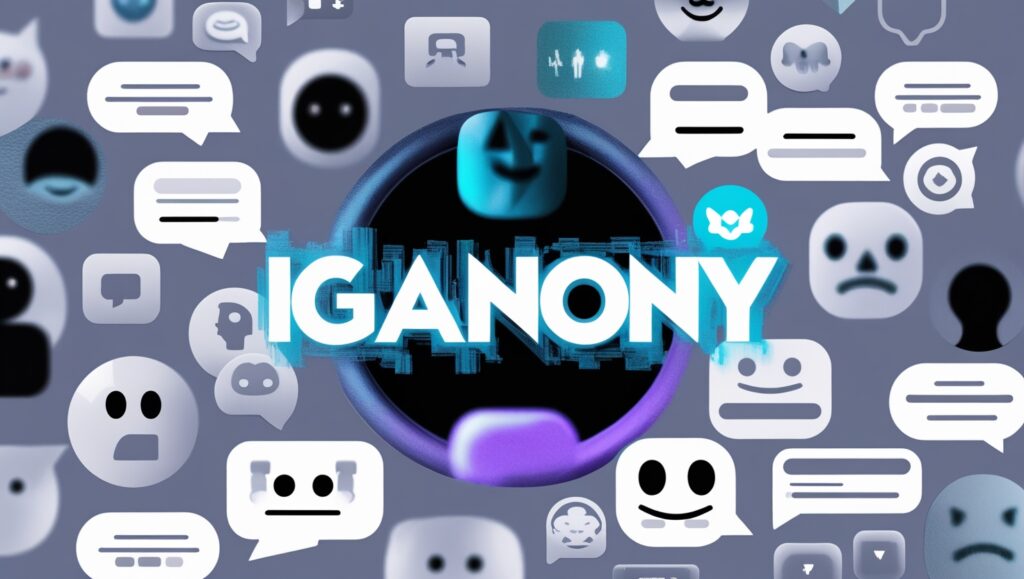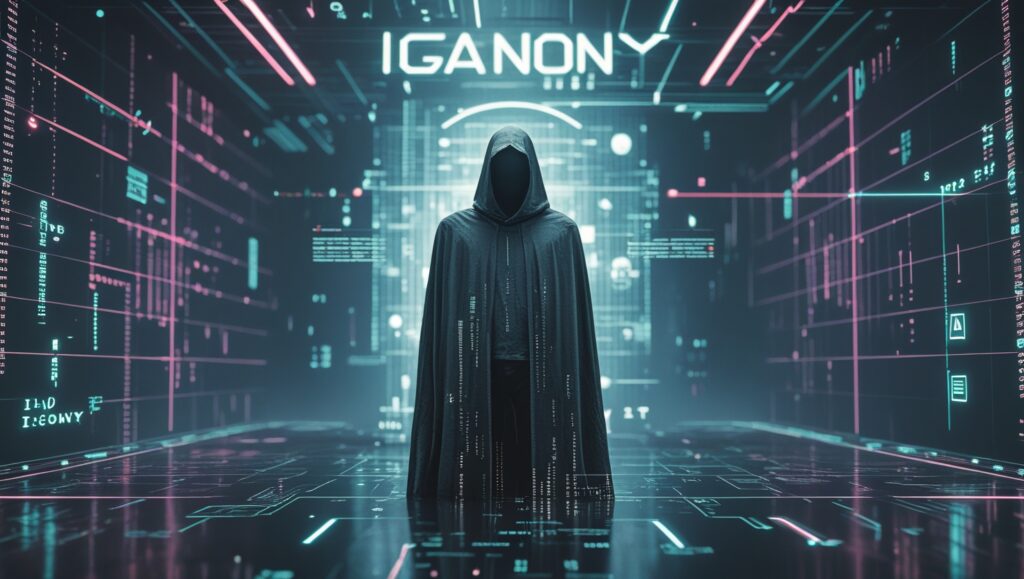New words, slang, and concepts are commonly used as the digital world develops rapidly. Iganony, such a term, has been gaining attention recently. But what does Iganony mean? Where do you come from? Why is it spreading to online communities?
This incoming call guide examines everything you need to know about Iganony, from its origins and cultural effects to its use in memes, technology, and internet slang.
The Rise of Iganony
If you’ve spent any time surfing forums, social media, or maybe gaming chats recently, chances are youve stumbled upon the period iganony. Whether used seriously, sarcastically, or as a part of net humor, its use is increasing.
Iganony is one of these net-borne phrases that quick develops layers of meaning. Some see it as a shape of virtual identity. Others suppose it represents anonymity or an summary concept. But one thing`s clear: iganony is resonating with an extensive target market online.
What Does Iganony Mean?
At its core, iganony is a modern term with multiple interpretations depending on context.
Common interpretations of iganony include:
- A symbol of an anonymous digital presence
- A parody or satirical take on deep philosophical identity
- A made-up term meant to be deliberately vague and mysterious
- A term referring to abstract authenticity in a digital age
Its meaning is fluid, much like many internet memes and slang terms that evolve.
In many cases, iganony functions as a stand-in for something ineffable or difficult to define, almost like a “digital void” or a modern-day inside joke shared by internet communities.
Possible Origins of Iganony
So, where did the word iganony come from? While there’s no single, universally accepted origin, there are a few leading theories:
1. Meme Culture and Absurdism
Some suggest Iganony emerged from meme communities that thrive on random, absurd humor. Much like the word “blursed” (blessed + cursed), iganony could be a made-up word intended to sound profound, but meaningless.
2. Anagram Theory
A few creative minds on Reddit speculate that iganony might be an anagram or portmanteau:
- “I” + “Anony” = I + Anonymous
- A creative spin on identity in anonymous online spaces.
3. Generative AI and Auto-Linguistics
Another plausible theory is that Iganony was first generated by AI or language models. As neural networks spit out plausible-sounding but new words, some of them gain traction. Iganony could be an example of such AI-born terminology that resonated with users.
Iganony in Internet Culture
One of the reasons Iganony has grown in popularity is that it fits so well into online culture. It’s abstract, meme-friendly, and feels like it belongs in a digital-first society.
How it’s used:
- As a username or handle
- In online discussions about identity, irony, or absurdism
- In fictional or surrealist writing
- On TikTok videos and Twitter/X threads as a punchline or theme
It taps into a larger cultural interest in fluid identity, pseudonymity, and satire. The word itself invites speculation, discussion, and creativity.
Use of Iggy in Memes and Online Humor
Iganony has become something of a cult favorite in meme circles.
Examples of iganony in memes:
- A black-and-white image of a mysterious figure with the caption: “The last known photo of Iganony, 2003.”
- Threads filled with ironic statements like “I gave everything up for iganony.”
- Videos that introduce philosophical or strange concepts and end with: “Welcome to the world of Iganony.”
This ironic tone helps it flourish in online spaces where satire, parody, and ambiguity are celebrated.
Iganony in Pop Culture
Beyond internet culture, Iganony has started to show up in:
- Indie music: Some artists use it in lyrics or track titles.
- Streetwear: T-shirts and hoodies feature the word “IGANONY” in glitchy, abstract fonts.
- Art and digital galleries: Conceptual art pieces explore the “state of iguanony” through interactive design.
Its mystique gives it appeal across creative industries.

The Psychology Behind Iganony
Why does a word like iganony catch on? The answer lies partly in psychology and the human fascination with the unknown.
Factors contributing to its appeal:
- Mystery: People are drawn to things they can’t easily define.
- Belonging: Using niche or “inside” words helps people feel part of a group.
- Playfulness: Language is a playground online, and imagination is an inventive toy.
There’s also a psychological connection to postmodern identity, where one’s true self online is ever-changing, blurred, and masked. Iganony captures that mood perfectly.
Iganony and Anonymity Online
The connection between iganony and anonymity is central to many interpretations. In a world where people create alter egos, burner accounts, and virtual personas, iganony has emerged as a symbol of that ambiguity.
Common themes:
- “Iganony is not a person—it’s a presence.”
- “You never see Iganony coming. You only realize it was there after it’s gone.”
- “To become anonymous is to shed ego.”
While some use it humorously, others invoke it in deeper philosophical conversations about who we are online versus offline.
How Brands Are Using Instagram
As brands try to stay relevant, some have started tapping into micro-trends like iganony.
Branding Examples:
- A fashion brand released a limited edition “Iganony” line focused on monochrome aesthetics.
- Digital creators use it as part of NFT drops or virtual art installations.
- One skincare company even described its product as “the essence of iganony—clean, unseen, essential.”
Marketers are increasingly aware that mysterious, undefined branding can spark intrigue, and Iguanodon provides exactly that.
Criticisms and Misunderstandings Around Iganony
Not everyone is on board with iganony. Critics argue that it’s:
- Pretentious nonsense meant to sound deep
- Another case of internet slang saturation
- A sign that digital culture is becoming too self-referential
Others see it as a harmless trend—one of many ephemeral online obsessions. Either way, it sparks debate, which is part of its charm.
Iganony and the Future of Online Communication
As online identity continues to shift, anonymity may serve as a symbol of future trends:
What Iganony tells us about the digital future:
- We value fluidity over fixed identity
- Anonymity is not about hiding, but expressing differently
- Language online is increasingly conceptual, meme-based, and communal
Expect to see more terms like iganony emerge—terms that aren’t just words, but experiences in themselves.
Frequently Asked Questions About Iganony
Q: Is iganony a real word?
A: Technically, no. It’s a neologism with roots in internet culture, but not officially recognized in dictionaries.
Q: How do you pronounce iganony?
A: Most say “ee-guh-NAH-nee”, but pronunciations vary.
Q: Is there a person behind Iganony?
A: No confirmed creator. It’s more of a crowd-created term that grew organically.
Q: Can I use iganony in my branding?
A: Yes, especially if your brand speaks to mystery, fluid identity, or digital-first aesthetics.
Q: Will iganony still be relevant next year?
A: Like most trends, it may fade, but it has enough abstract appeal to endure longer than typical memes.
Conclusion: The Staying Power of Iganony
Iganony is more than just a quirky internet language. It represents a contemporary change in understanding identity, community, and meaning in the digital age. Whether you see it as satire, symbolism, or just weird, it created room for online culture.
Languages occur in real time, so Iganony is a memory that doesn’t require fixed definitions. Sometimes the beauty of words lies in their secrets.
So the next time someone asks you, “What is iganony?”—smile, and simply say:
“You had to be there.”
